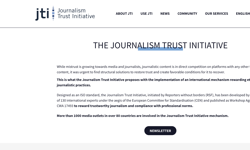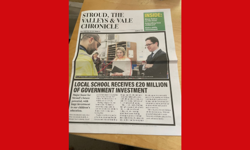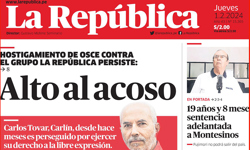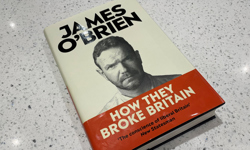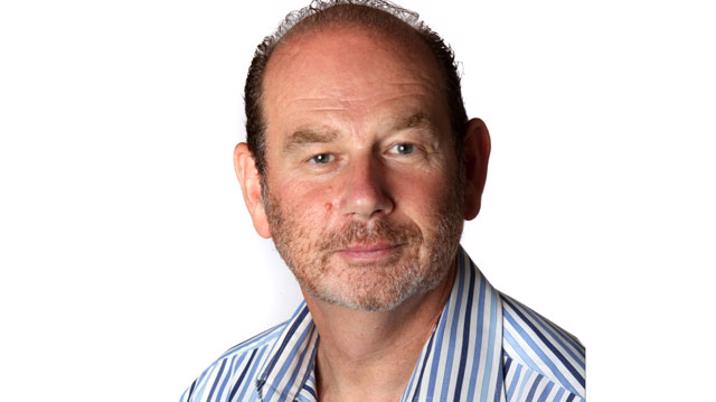
The Society will raise the issue of the amendments tabled by Baroness Hollins and Earl Attlee during its ‘Fighing for Real News’ conference being staged in Cambridge today. The conference will take place on the same day the House of Lords will be debating further the amendments which, says the Society, would shift the balance away from freedom of expression and towards privacy.
“We can only echo the comments made by Lord Black of Brentwood and others in the House of Lords this week that these amendments appear to be nothing more than a ruse – and a fairly obvious one – to force publishers to join the state-sponsored regulator IMPRESS,” commented Society of Editors Executive Director Ian Murray.
“Disturbingly, if the amendments were agreed and brought into law they would impose draconian restrictions not just on the printed media, but virtually all forms of publishing and broadcasting. Investigative journalism would be dead in the water and the public’s right to know damaged beyond repair.
“There is little doubt that the so-called Paradise Papers, which are currently exposing so much information that is clearly in the public’s interest, would not be able to be aired in this country if the amendments came to pass. Surely this is nonsense in a free society?”
Currently the media is protected by well-established exemptions for journalism, literature and art, on freedom of expression grounds. The intention with the Data Protection Bill is to preserve all such exemptions that have worked well in the Data Protection Act, carrying them over to the new law.
The amendments to the Data Protection Bill, proposed by Baroness Hollins and Earl Attlee, would shift the balance away from freedom of expression and towards privacy. They introduce a test of necessity, removing the requirement for the special importance of the public interest in the freedom of expression and information to be taken into account and substituting instead a requirement that the likely interference with privacy resulting from the use of someone’s personal data is outweighed by the public interest in publication.
The amendments would give powerful claimants with something to hide fresh ammunition to pursue legal claims and shut down legitimate public interest investigation into their activities, says the Society.
All UK news media operations – broadcast, print or online – could find themselves under incessant legal challenge. This would endanger all reporting of news, features and other editorial material and even the keeping of archives, says the Society of Editors.
Other amendments put down by Baroness Hollins and Earl Attlee mean that some of those vital journalistic exemptions which are retained under the data protection regime would only be available to broadcasters and a tiny number of hyperlocal titles and websites which are members of the Max Mosley-funded regulator IMPRESS, but no longer available to UK national and local newspapers.
Claimants would be able to find out information which newspaper journalists hold about them and prevent it being used even before any article has ever been published, undermining the basic principles of free speech.
Speaking in a debate in the House of Lords last week on what he described as a “profoundly dangerous” series of amendments tabled by Baroness Hollins and Earl Attlee, Lord Black said they were nothing to do with data protection but instead were an attempt “yet again” to force the British press to join the state-sponsored regulator IMPRESS.
“These amendments try to do that by seeking to remove vital journalistic exemptions enshrined in the GDPR from all those who will not, on grounds of principle, be bullied into a system of state-sponsored regulation.
“Other amendments seek to remove the protection for freedom of expression, which has worked very well in the Data Protection Act 1998, to balance convention rights and make privacy in effect a trump card,” Lord Black, chairman of the News Media Association’s legal, policy and regulatory affairs committee, said.
Lord Black continued: “Let us be clear: the amendments would be a body blow to investigative journalism — at a time when, as we have seen in recent days and weeks, it has never been more vital — by giving powerful claimants with something to hide the ammunition to pursue legal claims and shut down legitimate public interest investigations into their activities even before anything is published.
“In my view, it is no exaggeration to say that that would overturn the principle that has underpinned free speech in Britain for two centuries: that journalists have the right to publish what they believe to be in the public interest and answer for it after publication — a right upheld by the courts here and all the way up to the European Court of Human Rights.
“The protections which make investigative journalism possible would in effect be enjoyed by only a handful of hyper-local publishers which have signed up to a state-backed regulator. Are the noble Lords in whose names these amendments stand really content to see the future of investigative journalism in this country invested in The Ferret or inside Moray, rather than in the teams from the Observer, the Liverpool Echo, the Scotsman and the many others which over the years have broken story after story in the public interest?”




